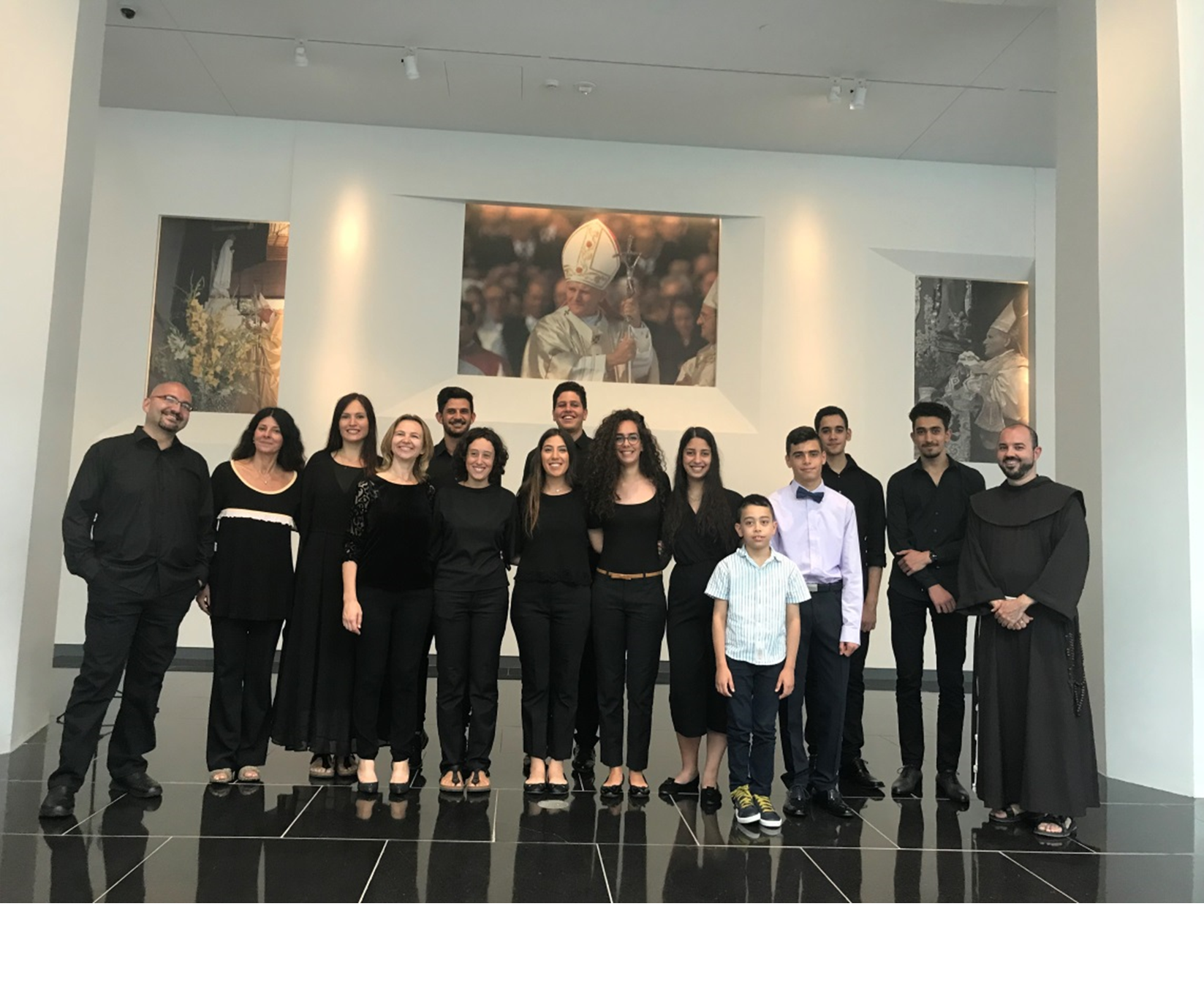At a time when much noise surrounds the Holy City of Jerusalem, there is harmony taking place at the Magnificat Institute – the Music School of the Custody of the Holy Land. Countless hours of practice bore fruit when students and teachers shared their heavenly sounds between July 12 and 16 at the Shrine of St. John Paul II, the Museum of the Bible, and the Franciscan Monastery of the Holy Land in America in Washington, D.C. and at the Basilica of the National Shrine of the Assumption of the Blessed Virgin Mary in Baltimore.
The Magnificat, inspired by Fr. Armando Pierucci, has operated in the Old City of Jerusalem for more than twenty years. It is “a laboratory of coexistence,” as the Magnificat’s website states, where students bring their diverse cultures and experiences in order to enrich each other and those who attend their performances. Directed by Fr. Alberto J. Pari, ofm, the Magnificat provides high academic education in practice in music for the local children of Jerusalem irrespective of gender, language, race, or religion. The long list of Magnificat courses taught include: violin, viola, cello, piano, guitar, voice, flute, trumpet, bassoon, music theory, and history of music. These courses enhance the students’ knowledge and performance practice in classical and contemporary music. According to Fr. Alberto, the Magnificat “creates an active academic environment that is conducive to cooperation and harmony among the teachers, students, staff, and the larger society.
The five Magnificat concerts of instrumentals and vocals in DC and Baltimore, organized by the Franciscan Monastery of the Holy Land in America, were inspiring as they made angels hover and sing and brought tears of joy to human eyes. The performers – Fr. Alberto, Jamil Freij, Eleonora Lué, Giuliana Mettini, Tareq Wahba (voice); Tania Beltser, Rani Ibrahim, Majd Nasrawi, Habib Sabbara, and Rita Taweel (violin); Lucia D’Anna and Yasmeen Sabbara (cello); Fadi Sabat and Rafi Sabat (piano); and William Obeid (Guitar) – made alive J.S. Bach: French Suite n. 3 in Si Minor; N. Paganini: Cantabile; C. Loewe: Schaffe in mir Gott, Psalm 51; Psalm 42; G.F. Handel: Comfort Ye, My People-from Messiah; F. Liszt: Liebestraum-Love Dream n. 3; S. Prokofiev: Romeo and Juliet n.13-Dance of the Knights; and F. Mendelssohn: Venetian condolier song, among others. As St. John Paul II stated in his April 4, 1999 Letter to Artists, “Those who perceive in themselves this kind of divine spark which is the artistic vocation—as poet, writer, sculptor, architect, musician, actor, and so on – feel at the same time the obligation not to waste this talent but to develop it, in order to put it at the service of their neighbor and of humanity as a whole.”
The passion for music and the arts definitely breaks ethnic, national, and religious barriers. The Magnificat Institute is playing the correct note. It deserves our support as it actualizes the dream of peaceful coexistence through creativity and music. Bravo!
*Saliba Sarsar, Ph.D., born and raised in Jerusalem, is Chair of the HCEF Research and Publication Committee and Professor of Political Science at Monmouth University.
Saliba Sarsar, Ph.D.






